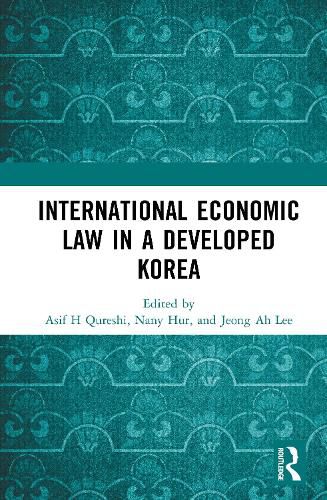Readings Newsletter
Become a Readings Member to make your shopping experience even easier.
Sign in or sign up for free!
You’re not far away from qualifying for FREE standard shipping within Australia
You’ve qualified for FREE standard shipping within Australia
The cart is loading…






The book examines South Korea's evolving role in the global economic legal framework by analysing how this developed nation navigates complex trade relationships, shapes international norms, and addresses emerging challenges in a rapidly changing world order.
Through detailed case studies of South Korea's economic diplomacy with major partners, it traces the country's strategic transition from adhering to GATT rules to becoming a leader in regional free trade agreements. It also explores South Korea's innovative methods of integrating sustainability and digitalisation into its trade policy. The book provides a clear understanding of how a developed Asian economy balances domestic priorities with international obligations. By investigating the causal mechanisms behind its policy choices, the book assesses the strengths and weaknesses of South Korea's strategies as an influential middle power, and their global impact.
This book will be of interest to scholars and policymakers in international economic law, comparative law, international trade and investment law, particularly those interested in Asian perspectives on global economic governance.
$9.00 standard shipping within Australia
FREE standard shipping within Australia for orders over $100.00
Express & International shipping calculated at checkout
The book examines South Korea's evolving role in the global economic legal framework by analysing how this developed nation navigates complex trade relationships, shapes international norms, and addresses emerging challenges in a rapidly changing world order.
Through detailed case studies of South Korea's economic diplomacy with major partners, it traces the country's strategic transition from adhering to GATT rules to becoming a leader in regional free trade agreements. It also explores South Korea's innovative methods of integrating sustainability and digitalisation into its trade policy. The book provides a clear understanding of how a developed Asian economy balances domestic priorities with international obligations. By investigating the causal mechanisms behind its policy choices, the book assesses the strengths and weaknesses of South Korea's strategies as an influential middle power, and their global impact.
This book will be of interest to scholars and policymakers in international economic law, comparative law, international trade and investment law, particularly those interested in Asian perspectives on global economic governance.